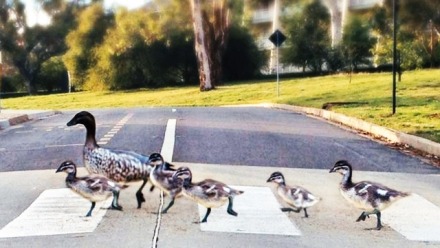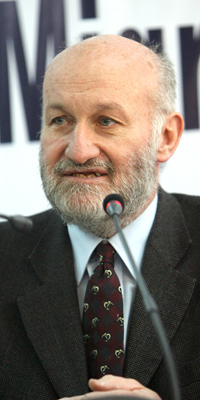Graeme Hugo 1946-2015

 Our esteemed friend and colleague, Graeme Hugo, died on 19 January 2015 following a short battle with lymphoma. His death comes as a terrible shock to all who knew him well. Right up until his death, Graeme was communicating with colleagues about work in progress. In the survey of International Union for the Scientific Study of Population (IUSSP) members in 2009 by van Dalen and Henkens, he was voted by his peers as the 34th ranked demographer of all time for the quality of his work.
Our esteemed friend and colleague, Graeme Hugo, died on 19 January 2015 following a short battle with lymphoma. His death comes as a terrible shock to all who knew him well. Right up until his death, Graeme was communicating with colleagues about work in progress. In the survey of International Union for the Scientific Study of Population (IUSSP) members in 2009 by van Dalen and Henkens, he was voted by his peers as the 34th ranked demographer of all time for the quality of his work.
First and foremost, Graeme was a scholar of international migration. Three joint publications on theories of international migration published in 1993, 1994 and 1999 have 5,800 citations in Google Scholar, and he has numerous other highly cited publications on international migration. He frequently participated in international meetings focussed upon international migration policy that were sponsored by lead agencies such as UNFPA, the World Bank, the International Organisation for Migration and the Asian Development Bank. And his reports for these agencies have been highly influential. Much of his work also focussed on internal migration. This included the conceptualisation and measurement of internal migration, its causes and its policy implications.
In regional terms, he was an expert on Southeast Asia and Indonesia in particular. This began in the early 1970s with his Australian National University (ANU) PhD thesis on circular migration in West Java. Graeme was attracted to ANU for his PhD by the work that Jack Caldwell had done on internal migration in Ghana and Nigeria and Jack became his main PhD advisor. At that time, ANU had just commenced its strong focus upon the demography of Indonesia and so Graeme became a part of that focus. He lived very frugally during his PhD fieldwork in West Java. At the time, I was working at the University of Indonesia in Jakarta and I have fond memories of the times that he would drop in to my place for a shower and a glass of wine. Subsequently, he produced many publications on migration in Southeast Asia and a seminal book (with Terry and Valerie Hull and Gavin Jones) on the demographic dimension in Indonesia’s development.
In his home country, Australia, he was much in demand from governments at all levels for advice on migration and population policy. He served on many national committees and, in 2011, led a major enquiry by the Australian Government on population policy. In 2012, he was awarded the great honour of being appointed as an Officer in the Order of Australia for his services to the field of demography. At the time of his death, he had served for eight years on the Australian Statistical Advisory Council. The Australian Deputy Statistician, Peter Harper, described Graeme as one of life’s gentlemen, a brilliant mind and very generous with his time.
Graeme grew up in Adelaide and completed his undergraduate degree at the University of Adelaide. His services to his home state were phenomenal. He was a South Australian institution. He has always been there as a resource for the South Australian government and people, often contributing his time and expertise, quite unselfishly, for very little return. He was equally at home on the international stage as conducting research on a small country town in South Australia. At the University of Adelaide and Flinders University, he trained numerous students at Masters and PhD levels and is highly regarded and fondly remembered by all of them. His funeral service will be held at the famous Adelaide Oval, which is managed by his equally energetic partner, Sharon, on Tuesday 27 January. I am deeply affected by his sudden passing as are his other colleagues in Australia and other countries. For his life and his friendship, all I can say is ‘good onya mate’.
Peter McDonald
Professor of Demography, Australian National University and
Honorary President of IUSSP








